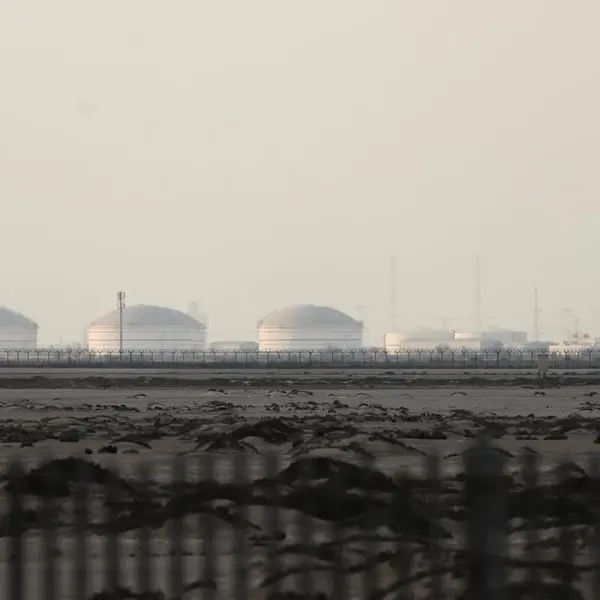PHOTO
* Plan contains hundreds of policies and targets
* Most detailed, ambitious revamp of economy in decades
* But austerity steps will be big drag on economy
* Private sector will be pressured as it's asked to do more
By Andrew Torchia
DUBAI, June 7 (Reuters) - Investors gave a lukewarm response to Saudi Arabia's economic reform plan on Tuesday as they worried that steps to rein in a $100 billion state budget deficit could cause a deep slowdown in the kingdom.
A 110-page document released by the government on Monday night detailed the biggest overhaul of policy in decades - an effort to restructure the economy so that it can survive an era of low oil prices.
urn:newsml:reuters.com:*:nL8N18Y4HQ
The National Transformation Plan (NTP) contains hundreds of policies and targets that, if realised, would change the way Saudi Arabia does business. They range from promoting non-oil industries such as tourism to privatising the postal service, using more renewable energy, automating customs procedures and adjusting public-sector salaries.
urn:newsml:reuters.com:*:nL8N18Y57W
But markets focused mainly on Tuesday on the plan's effort to rein in public spending and balance the budget by 2020. Non-oil state revenues are to leap to 530 billion riyals ($141 billion) in 2020 from 163.5 billion riyals in 2015; new taxes will be imposed and fuel subsidies cut further.
The fear among some investors is that such austerity steps could stifle the economy, boosting unemployment and weakening rather than strengthening faith in Riyadh's ability to sustain the Saudi riyal's peg against the U.S. dollar.
The Saudi stock index
.TASI
edged up 0.9 percent on Tuesday but trade was modest and the market remained 4.9 percent below its level in late April, when the government made an initial, broad statement on the reforms.
Other markets showed no positive reaction to the reform announcement; the cost of insuring Saudi sovereign debt against default
SAGV5YUSAC=MG
and the yield on Saudi Electric Co's April 2023 bond
SASUKCBAA45=
rose marginally, while the riyal edged down in the one-year forwards market
SAR1Y=
.
"The announcement is positive in that it shows a commitment to fiscal reform - the government is clearly focusing on it," said Monica Malik, chief economist at Abu Dhabi Commercial Bank.
"But the key is whether the plan can be implemented, and that will be difficult. It's not clear that the time scale is doable."
FISCAL DRAG
Malik estimated austerity measures introduced around the time that Riyadh released its 2016 budget last December equated to a hit to the economy of about 1.5 to 2.0 percent of gross domestic product (GDP).
She calculated the austerity steps in the NTP could total 2.5-3.0 percent of GDP annually through 2020 - an even bigger drag on the economy.
Since analysts already expect GDP growth to slow to around 1.5 percent this year from 3.3 percent in 2015, the economy may risk stagnation as the NTP proceeds.
That would hurt private-sector growth at a time when the plan calls for private firms to finance more development projects in order to ease the burden on state finances - and as Riyadh is trying to lure more foreign investment.
urn:newsml:reuters.com:*:nL8N18Z2EA
A politically sensitive goal of the NTP is to cut public salaries and wages as a proportion of the state budget to 40 percent by 2020 from 45 percent.
This appears likely to happen through attrition of staff, caps on pay increases and inflation rather than through outright lay-offs of public employees or salary cuts. But it is a dramatic step in a country which has long used state employment as a social welfare tool.
"The wage target underlines a serious stance on fiscal retrenchment ... but it implies a challenging few years for consumers as 80 percent of Saudi nationals work for the public sector," investment bank EFG Hermes said in a report.
The government also plans to introduce a value-added sales tax in 2018 but the full extent of its tax plans is not clear. The NTP directs the finance ministry to launch an "income tax on residents"; officials said on Monday that Saudi citizens would not be subject to the tax, but declined to comment further.
James Reeve, deputy chief economist at Saudi Arabia's Samba Financial Group, said the public wage adjustments could have a positive effect by pushing Saudis into private-sector jobs. But until the education system is more responsive to private sector needs, some workers will not be ready for the shift, he added.
"There is a danger that the economy will suffer from a rather awkward transition as Saudi graduates are shifted over to the private sector."
John Sfakianakis, a former adviser to the Saudi government and director of economic research at the Gulf Research Center in Riyadh, said the NTP needed to balance what it was taking from the private sector in the form of taxes and fees with what it was providing as incentives and new business opportunities.
To avoid economic stagnation, authorities will need to be ready to adjust the speed of elements of the NTP as they see how businesses are reacting, he said.
"If some aspects of the NTP are delayed, that doesn't mean it has failed. The key is to make sure that things are moving in the right direction with job creation and growth, rather than going backwards."
(Reporting by Andrew Torchia; Editing by Pravin Char) ((andrew.torchia@thomsonreuters.com; +9715 6681 7277; Reuters Messaging: andrew.torchia.thomsonreuters.com@reuters.net))
* Most detailed, ambitious revamp of economy in decades
* But austerity steps will be big drag on economy
* Private sector will be pressured as it's asked to do more
By Andrew Torchia
DUBAI, June 7 (Reuters) - Investors gave a lukewarm response to Saudi Arabia's economic reform plan on Tuesday as they worried that steps to rein in a $100 billion state budget deficit could cause a deep slowdown in the kingdom.
A 110-page document released by the government on Monday night detailed the biggest overhaul of policy in decades - an effort to restructure the economy so that it can survive an era of low oil prices.
The National Transformation Plan (NTP) contains hundreds of policies and targets that, if realised, would change the way Saudi Arabia does business. They range from promoting non-oil industries such as tourism to privatising the postal service, using more renewable energy, automating customs procedures and adjusting public-sector salaries.
But markets focused mainly on Tuesday on the plan's effort to rein in public spending and balance the budget by 2020. Non-oil state revenues are to leap to 530 billion riyals ($141 billion) in 2020 from 163.5 billion riyals in 2015; new taxes will be imposed and fuel subsidies cut further.
The fear among some investors is that such austerity steps could stifle the economy, boosting unemployment and weakening rather than strengthening faith in Riyadh's ability to sustain the Saudi riyal's peg against the U.S. dollar.
The Saudi stock index
Other markets showed no positive reaction to the reform announcement; the cost of insuring Saudi sovereign debt against default
"The announcement is positive in that it shows a commitment to fiscal reform - the government is clearly focusing on it," said Monica Malik, chief economist at Abu Dhabi Commercial Bank.
"But the key is whether the plan can be implemented, and that will be difficult. It's not clear that the time scale is doable."
FISCAL DRAG
Malik estimated austerity measures introduced around the time that Riyadh released its 2016 budget last December equated to a hit to the economy of about 1.5 to 2.0 percent of gross domestic product (GDP).
She calculated the austerity steps in the NTP could total 2.5-3.0 percent of GDP annually through 2020 - an even bigger drag on the economy.
Since analysts already expect GDP growth to slow to around 1.5 percent this year from 3.3 percent in 2015, the economy may risk stagnation as the NTP proceeds.
That would hurt private-sector growth at a time when the plan calls for private firms to finance more development projects in order to ease the burden on state finances - and as Riyadh is trying to lure more foreign investment.
A politically sensitive goal of the NTP is to cut public salaries and wages as a proportion of the state budget to 40 percent by 2020 from 45 percent.
This appears likely to happen through attrition of staff, caps on pay increases and inflation rather than through outright lay-offs of public employees or salary cuts. But it is a dramatic step in a country which has long used state employment as a social welfare tool.
"The wage target underlines a serious stance on fiscal retrenchment ... but it implies a challenging few years for consumers as 80 percent of Saudi nationals work for the public sector," investment bank EFG Hermes said in a report.
The government also plans to introduce a value-added sales tax in 2018 but the full extent of its tax plans is not clear. The NTP directs the finance ministry to launch an "income tax on residents"; officials said on Monday that Saudi citizens would not be subject to the tax, but declined to comment further.
James Reeve, deputy chief economist at Saudi Arabia's Samba Financial Group, said the public wage adjustments could have a positive effect by pushing Saudis into private-sector jobs. But until the education system is more responsive to private sector needs, some workers will not be ready for the shift, he added.
"There is a danger that the economy will suffer from a rather awkward transition as Saudi graduates are shifted over to the private sector."
John Sfakianakis, a former adviser to the Saudi government and director of economic research at the Gulf Research Center in Riyadh, said the NTP needed to balance what it was taking from the private sector in the form of taxes and fees with what it was providing as incentives and new business opportunities.
To avoid economic stagnation, authorities will need to be ready to adjust the speed of elements of the NTP as they see how businesses are reacting, he said.
"If some aspects of the NTP are delayed, that doesn't mean it has failed. The key is to make sure that things are moving in the right direction with job creation and growth, rather than going backwards."
(Reporting by Andrew Torchia; Editing by Pravin Char) ((andrew.torchia@thomsonreuters.com; +9715 6681 7277; Reuters Messaging: andrew.torchia.thomsonreuters.com@reuters.net))





















